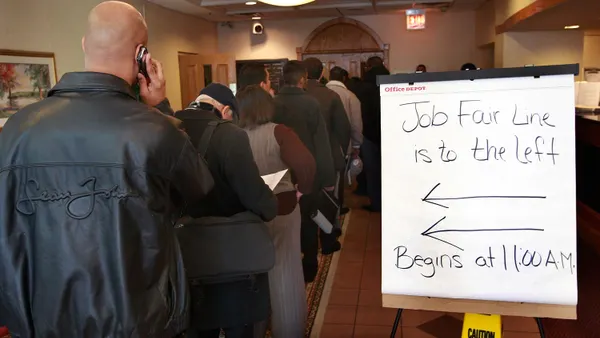Dive Brief:
- More than half of federal employees in a recent survey said they'd leave their job leave if they were offered a similar job with comparable pay and benefits — a stance that Eagle Hill Consulting said attributes to unmet culture expectations.
- Federal employees often are motivated by mission, the group said Dec. 12, but the research revealed that federal employees feel their organizations don't practice what they preach. While 75% of respondents said their agency has core values, only 55% of those said those values actually come through in agency policy.

- Most respondents said culture heavily impacts their organization’s success, their ability to serve customers and their productivity. "Culture sets the tone for employees to feel empowered and connected to their agency, which keeps them on the job and performing at the highest level," Melissa Jezior, CEO of Eagle Hill Consulting, said in a press release. "But, the disconnect we see in the research is that in many cases, an agency's stated culture doesn't line up its actual practices and policies. And it's that misalignment that can ultimately lead to problematic employee experiences that can drive them out the door."
Dive Insight:
The importance of workplace culture extends beyond the federal workplace. In Speakap survey results released earlier this year, more than half of respondents said they'd be willing to jump ship for a better culture.
Culture should be treated as a business imperative, experts say. "For so long, people thought [culture] was about the soft, emotional stuff; making people happy. If you're just focused on making people happy, you will lose money and go out of business." Barbara Porter, now managing director at EY, previously told HR Dive.
And given the results of the Eagle Hill survey, private-sector employers and state and local governments may find that the federal workforce could serve as a talent source. The respondents appear to realize the importance of culture and its impact on customer service, productivity, integrity and trust — a recognition that could make them quality candidates.










